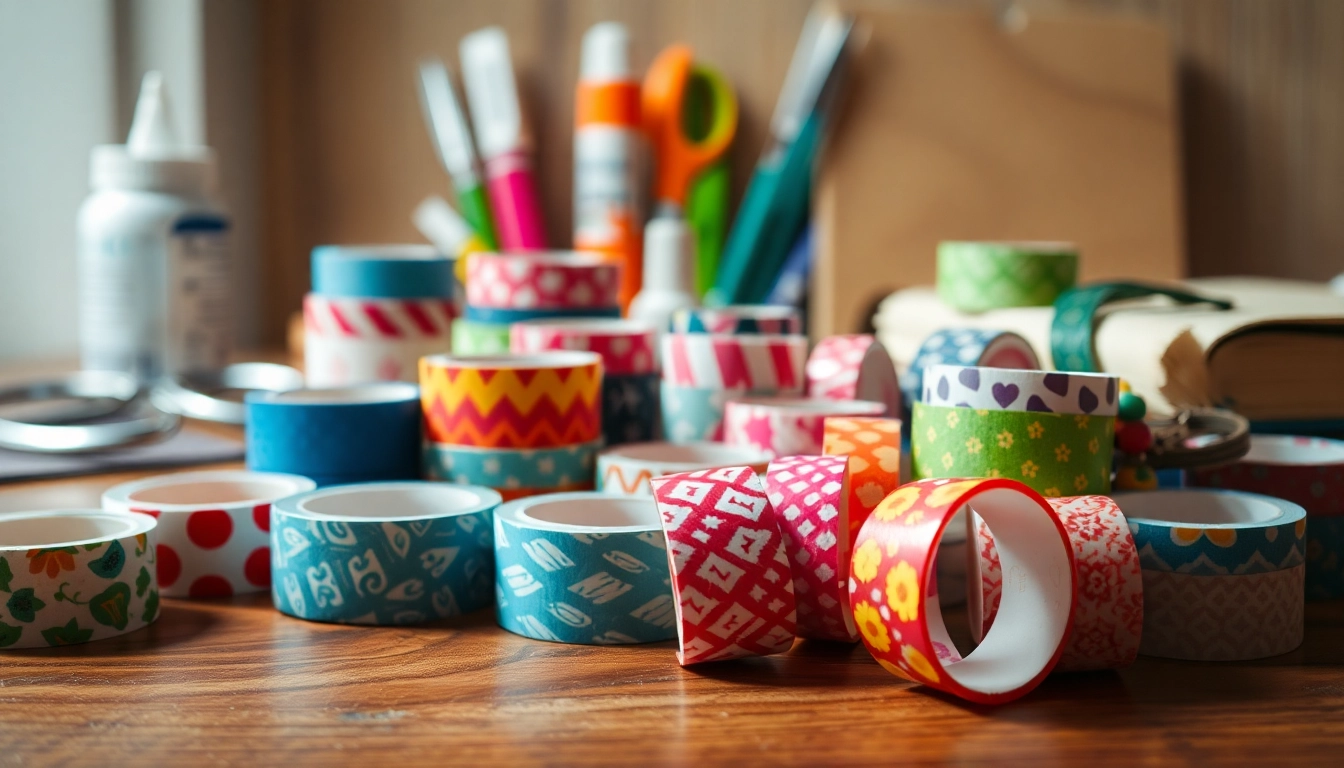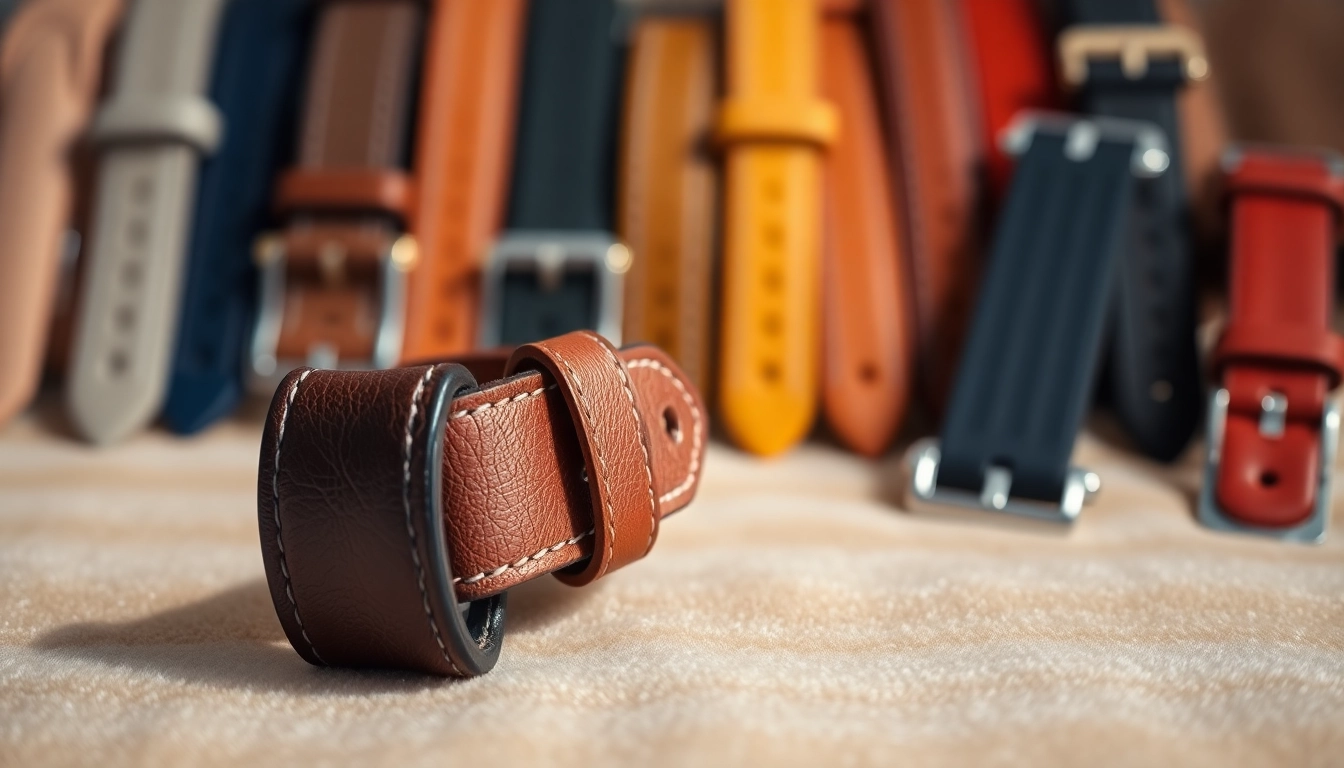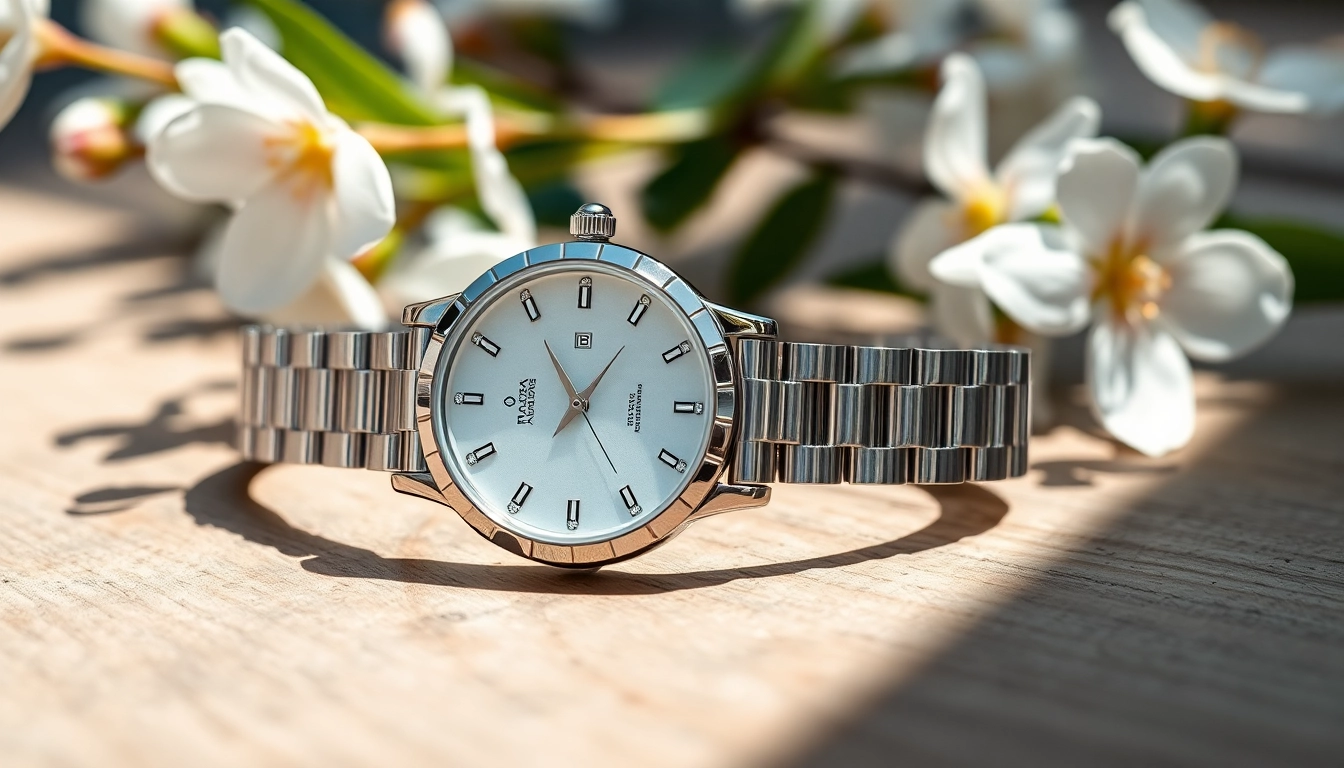
Understanding the Basics of Washi Tape
What is Washi Tape?
Washi tape is a decorative adhesive tape that originated in Japan, made from traditional Japanese paper known as washi. Its lightweight and semi-transparent nature make it a favorite among crafters and DIY enthusiasts. Unlike standard tape, washi tape is highly versatile; it can be torn by hand, repositioned without leaving a sticky residue, and comes in a variety of colors, patterns, and styles. As you embark on your crafting journey, consider the potential of washi tape in transforming ordinary projects into extraordinary creations.
Historical Significance and Uses
The history of washi tape can be traced back to traditional Japanese papermaking techniques. Originating from the centuries-old craft of producing washi paper, it reflects Japan’s commitment to artistry and craftsmanship. Initially used for packaging and sealing purposes, washi tape has evolved into an essential tool for embellishment, decoration, and organization in various creative activities. From crafting to gift-wrapping, the applications of washi tape are virtually limitless. Its cultural heritage also adds a layer of significance, with many contemporary designs inspired by traditional patterns and styles.
Common Types of Washi Tape Available
Washi tape comes in numerous types, each catering to different aesthetic and functional needs. Some common varieties include:
- Standard Washi Tape: The most commonly used type, available in various widths, colors, and patterns.
- Metallic Washi Tape: Features metallic finishes that add a touch of glamour to your projects.
- Transparent Washi Tape: Slightly see-through, perfect for layering and creating unique designs.
- Custom Washi Tape: Personalized designs for branding or special occasions, ideal for businesses and events.
Creative Applications of Washi Tape
Using Washi Tape for Scrapbooking
Scrapbooking is a popular way to preserve memories, and washi tape deserves a prominent place in any scrapbook. Its ease of use and variety of designs can help enhance pages with styles that reflect personal taste and creativity. Here are a few tips for incorporating washi tape into your scrapbooks:
- Borders and Frames: Use washi tape to create borders around photos to draw attention to them.
- Layering: Combine different patterns and colors to add depth and interest to your layouts.
- Journaling: Use washi tape as dividers for journal sections, guiding the reader’s eye through your story.
Decorating Journals and Planners
Journals and planners can benefit tremendously from the decorative possibilities of washi tape. Transforming mundane tasks into enjoyable activities can enhance productivity and encourage creativity. Here’s how to creatively integrate washi tape in this context:
- Daily Highlights: Use different colored tapes to highlight specific days or tasks.
- Monthly Themes: Change the design of your washi tape each month to match seasonal themes or personal goals.
- Visual Cues: Create visual cues for different categories of tasks, using distinct patterns for work, personal, or health-related activities.
Creative Home Decor Ideas with Washi Tape
Your home is a blank canvas that can be adorned with washi tape in imaginative and innovative ways. From accent walls to functional decor, this adhesive tape can elevate any living space. Here are some engaging ideas to consider:
- Wall Art: Create unique wall art by arranging strips of washi tape into shapes or patterns directly on the wall.
- Furniture Makeover: Update old furniture by wrapping washi tape around drawer handles or legs for a fresh look.
- DIY Storage Solutions: Label storage boxes or jars with washi tape for a colorful organizational system.
Practical Tips for Working with Washi Tape
Best Practices for Adhesion
While washi tape is easier to reposition than other adhesives, ensuring optimal adhesion is crucial for its effectiveness. Here are some best practices:
- Surface Preparation: Ensure the surface where you apply washi tape is clean and dry for maximum stickiness.
- Press Firmly: Secure the tape by pressing it down firmly, especially at the edges, to prevent peeling.
- Layering: For layered designs, start from the bottom and work your way up, maintaining proper alignment.
Combining Colors and Patterns
Mixing and matching washi tape colors and patterns can yield stunning visual effects. To successfully combine different tapes:
- Color Theory: Apply the principles of color theory to create harmonizing or contrasting effects.
- Scale and Size: Pair large, bold patterns with smaller designs to create a balanced look.
- Theme Coordination: Stick to a theme or aesthetic (like floral, geometric, or minimalist) for a cohesive appearance.
How to Remove and Reposition Washi Tape
One of the advantages of washi tape is its removable nature. If repositioning is necessary, follow these steps to maintain the integrity of both your project and the tape:
- Gentle Pulling: Carefully pull the washi tape back at a 45-degree angle to minimize tearing.
- Heat Application: For stubborn cases, consider applying mild heat using a hairdryer to soften the adhesive.
- Clean Surface: If you’re reusing the tape, check for dust or dirt, ensuring a clean application for optimal adhesion.
Finding the Right Washi Tape for Your Projects
Where to Buy Quality Washi Tape
When it comes to sourcing washi tape, quality matters. You can find high-quality options both online and in physical stores. Here’s a breakdown of where to purchase:
- Online Retailers: Websites like Amazon and specialty craft shops often provide a diverse selection with customer reviews for informed choices.
- Local Craft Stores: Visiting a local craft store allows you to physically inspect the quality and pattern of the tape.
- Art Supply Stores: Many art supply stores stock a curated range of high-quality washi tape that can cater to artists’ needs.
Comparing Different Brands
Numerous brands produce washi tape, each with its unique flair and quality. When comparing brands, consider factors such as:
- Adhesive Quality: Some brands might use stronger adhesives, affecting repositionability.
- Paper Thickness: Thicker tape tends to hold up better in high-use areas but may be harder to tear.
- Design Variety: Brands with a broader range of designs may allow for more creative freedom.
Customer Reviews and Recommendations
Customer reviews can provide insight into a product’s quality and usability. Pay attention to feedback regarding:
- Durability: Does the washi tape hold up over time, or does it curl and peel?
- Adhesion: Are there any issues with the tape sticking to surfaces?
- Visual Appeal: Reviews often highlight how true to color and pattern the washi tape is compared to online images.
Innovative Trends in Washi Tape Design
Current Design Trends and Styles
As the crafting market evolves, so too do washi tape designs. Notable current trends include:
- Minimalism: Simple designs with clean lines and muted colors appeal to those seeking a modern aesthetic.
- Vintage Styles: Nostalgic patterns reminiscent of old postcards or stamps are making a comeback.
- Collaboration Collections: Many washi tape brands collaborate with artists and designers to create exclusive collections, providing unique options.
Seasonal Collections and Limited Editions
Seasonal designs add enthusiasm to projects year-round. Limited edition releases align with holidays, seasons, and other special occasions. Look for:
- Christmas Themes: Festive patterns featuring snowflakes, ornaments, or holiday colors.
- Spring Florals: Bright florals and pastel colors to celebrate rebirth and renewal.
- Halloween Motifs: Fun spooky designs perfect for October crafts.
Artists and Designers Leading the Way
Many artists and designers have embraced washi tape as a medium for creativity. Their innovative designs inspire individuals and businesses alike. Following notable artists can provide fresh ideas and insights on creative applications for washi tape. Collaborations often result in unique washi tape products that push the boundaries of this simple craft material.







